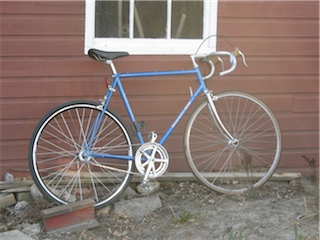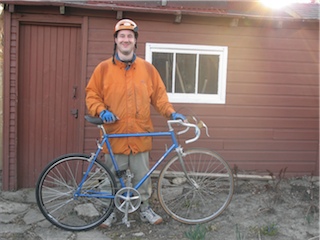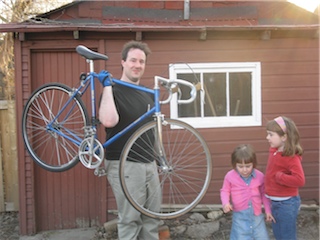Guides or Not?
I'm trying to decide if we should keep Delphine in Sparks next year. (Sparks is the precursor to Brownies, for 5- to 6-year-olds.) Delphine has been in Sparks for the last year, and now the time has come to sign up for next year. But I have serious qualms.
Guides is supposed to be about empowering girls and allowing them to build confidence, and yet they're going about it all wrong. The organization decides what girls should be interested in (by making badges available), decides how they should go about exploring those interests (the bullet-point items you have to fulfill before getting a badge) and then rewards them for their interest. Rewarding kids for things is a proven demotivator. And worse, in Sparks the girls haven't even had a chance to express their own interests: the meetings are predetermined at the beginning of the year. The girls' interests don't even come into play! It's incredibly disappointing to see a great opportunity to excite and engage girls be squandered because the adults involved lack the knowledge or imagination to do things differently.
Of course it's a giant crapshoot how good your troop is going to be because the Guide organization doesn't provide all that much, well, guidance on how to plan and run meetings. You might get amazing leaders who do know how to motivate and engage kids, or your girls might be stuck with a group of unruly kids led by frustrated adults yelling at them to shut up and get on with the Pointless Craft of the Day.
And if that weren't annoying enough, you have to sign an idiotic release form every time the troop does anything out of the ordinary. If the organization is that risk-averse, how are they going to help my girls become fearless?
Finally it's expensive. The annual fee is $125, there's a $1 dues charge at every meeting, and twice a year we have to pay $96 for those lousy cookies (and then dispose of them as we see fit). Plus we had to buy a shirt and sash. I suppose compared to the $250 or so that we spend on most 12-week programs Guides isn't actually all the pricey, but they seem to keep leeching at us all year instead of just once up front.
On the plus side, Delphine really enjoys it. But then she really enjoys watching Backyardigans and eating gummy worms too.


